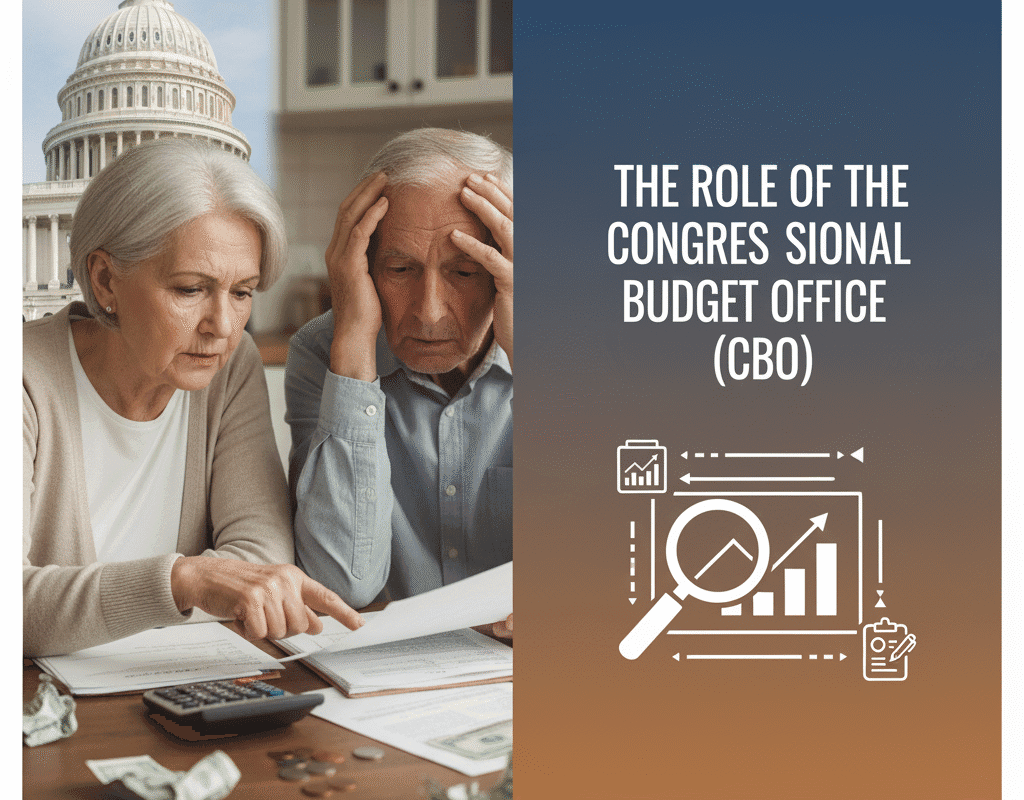The Role of the Congressional Budget Office:
The Role of the Congressional Budget Office:
The Congressional Budget Office (CBO) is a pivotal institution in the United States federal government, playing an essential role in shaping fiscal policy and supporting legislative decision-making.
Established in 1974 as part of the Congressional Budget and Impoundment Control Act, the CBO serves as a nonpartisan entity that provides Congress with independent analyses of budgetary and economic issues.
Over the decades, it has become an indispensable resource for lawmakers, policymakers, and the public by offering impartial insights into the potential impacts of federal spending, taxation, and economic legislation.
HSBC Cashback Credit Card 2025 – Benefits, Rewards & How to Apply?

Origins and Purpose of the CBO
The CBO was created in response to growing concerns over the executive branch’s influence on budgetary matters. Before its establishment, Congress heavily relied on the President’s budget proposals, leaving lawmakers with limited capacity to independently evaluate fiscal decisions.
The Congressional Budget and Impoundment Control Act of 1974 empowered Congress to take a more proactive role in budgetary oversight, ensuring that legislative decisions were informed by objective, data-driven analyses.
The primary mission of the CBO is to provide nonpartisan information to Congress to support its budgetary and economic policy decisions. Its mandate emphasizes impartiality, accuracy, and transparency, ensuring that its analyses are free from political influence.
Key Functions of the CBO
Budgetary Projections and Reports
One of the CBO’s core responsibilities is to produce detailed budgetary projections for the federal government. These reports include forecasts of revenues, spending, deficits, and federal debt.
By projecting the short-term and long-term financial outlook, the CBO enables Congress to make informed decisions about allocating resources and managing fiscal challenges.
Cost Estimates of Legislation
Whenever Congress considers new legislation, the CBO provides cost estimates that assess the potential financial impact of proposed bills. These estimates evaluate both direct costs and potential savings, helping legislators understand the budgetary consequences of their decisions.
The agency’s analysis is essential in identifying whether a proposal aligns with fiscal responsibility and sustainability goals.
Economic Analysis and Forecasting
Beyond budgetary estimates, the CBO conducts economic analysis that examines the broader impact of fiscal policy on the U.S. economy.
This includes evaluating trends in employment, inflation, economic growth, and interest rates. By providing comprehensive forecasts, the CBO helps policymakers anticipate economic challenges and adjust policies proactively.
Long-Term Budget Projections
In addition to short-term analyses, the CBO publishes long-term budget projections, often spanning 10 years or more. These projections assess the sustainability of federal programs, such as Social Security and Medicare, and provide insights into long-term fiscal challenges.
Long-term forecasts are crucial for identifying structural deficits and potential risks to the nation’s financial stability.
CBO Reports and Publications
The CBO regularly publishes reports and studies that inform both lawmakers and the public. Key publications include:
- The Budget and Economic Outlook: Published annually, this report provides a comprehensive analysis of federal revenue, spending, deficits, and debt.
- Cost Estimates for Legislation: These reports accompany bills under consideration, detailing projected costs or savings.
- Long-Term Budget Outlook: Offers projections spanning multiple decades to evaluate sustainability.
- Special Reports: Address specific issues such as healthcare costs, economic trends, and fiscal challenges.
These publications are widely regarded as authoritative sources due to their rigorous methodology and commitment to nonpartisan analysis.
Nonpartisan Nature and Credibility
A defining feature of the CBO is its nonpartisan mandate. Unlike executive agencies or political think tanks, the CBO does not advocate for particular policies.
Its credibility rests on objective, evidence-based analysis that informs decision-making without political bias.
This independence allows Congress to rely on CBO data and projections as a neutral foundation for debate and policy formulation.
Challenges and Criticisms
Despite its crucial role, the CBO faces several challenges:
- Economic Uncertainty: Forecasting the economy and federal budget is inherently complex. Unexpected events such as recessions, pandemics, or geopolitical crises can render projections inaccurate.
- Political Pressure: While mandated to be nonpartisan, the CBO sometimes faces scrutiny from lawmakers whose agendas are affected by its analyses.
- Methodological Limitations: Estimating costs and economic impacts involves assumptions and modeling techniques that may not capture all real-world variables.
Nevertheless, the CBO continues to be widely respected for its professionalism, transparency, and rigorous standards.
The Future of the CBO
As the U.S. faces increasingly complex economic and social challenges, the CBO’s role will only become more critical. Emerging issues such as climate change, technological disruption, and demographic shifts will require sophisticated modeling and analysis.
By continuing to provide impartial, high-quality insights, the CBO will remain an essential pillar of U.S. fiscal governance.
Conclusion: The Role of the Congressional Budget Office
The Congressional Budget Office is a cornerstone of fiscal accountability and policy analysis in the United States. By delivering independent, nonpartisan, and evidence-based insights, the CBO empowers Congress to make informed decisions that affect the nation’s economy and future.
From budget projections to policy evaluation, its work ensures transparency, supports responsible governance, and strengthens the legislative process.
How 401(k) Contributions Reduce Taxable Income: A Complete 2025 Guide for American Workers
How 401(k) Contributions Reduce Taxable Income: A Complete 2025 Guide for American Workers
